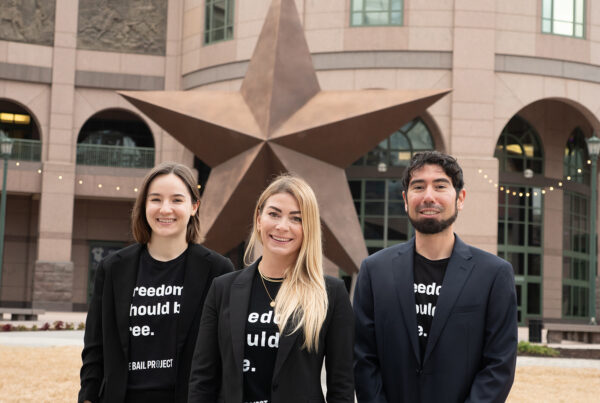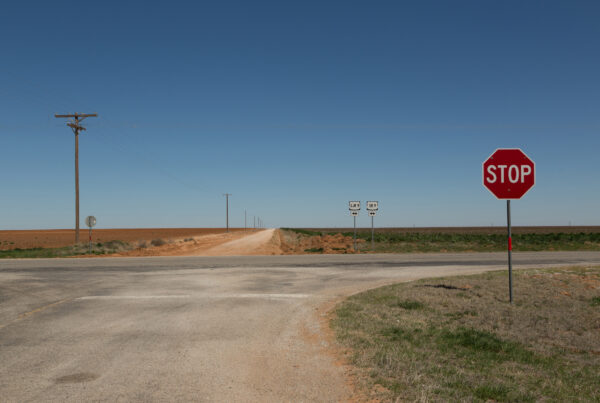What they say is true: everything’s bigger in Texas. From hats to burgers, Texan sizes overshadow the rest of the country. But bigger isn’t always better. Texas is also home to enormous jails, overfilled with people who can’t afford their cash bail amount required for their freedom. And with a big bail problem comes even bigger consequences.
Today, there are more than 70,000 people in Texas jails. But this one-day headcount is only a small snapshot into the true size of the pretrial system’s front door. One 2019 study estimated that 505,000 people are admitted into Texas jails each year – a larger number of people than in any other state.
Shockingly, most of these Texans are legally innocent. Over 70% of people held in jail have not been convicted of a crime and are awaiting their day in court behind bars. Since criminal cases can last for an average of 6-9 months, they may wait for a long time. Taxpayers, in the meantime, pick up the tab. With an average jail bed cost per day of $60.12, local governments shell out over $1.1 billion each year to detain people pretrial.
There is one option available to avoid this significant cost. Texas is a “right to bail” state, meaning that almost every arrested person has a constitutional right to be released after paying enough money out-of-pocket to convince a judge that he or she will return to court.
With this nearly guaranteed release option, it may be confusing why so many Texans remain in jail pretrial. It’s because cash bail creates a false option for low-income people, who cannot afford the bail amounts set against them, ranging from $500 to over $100,000. As a result, Texas’ bail system keeps many people who have not been convicted of anything in jail simply because they cannot pay the high price for their freedom.
Cash bail has an incredible, unnecessary toll on those trapped in jail. While they wait for their cases to end, people’s lives can fall apart; they can lose their jobs, homes, be separated from their children, and risk daily traumas that life in jail brings. These pressures mount against them and ultimately impact case outcomes. Research shows that people detained pretrial are more likely to plead guilty after succumbing to these pressures, leading to higher conviction rates and harsher punishments than their released counterparts.
With cash bail costing Texans so much, lawmakers should find an alternative. Fortunately, there is evidence that cash bail is not necessary to ensure that people return to court. Nationally, The Bail Project has supported over 28,000 people in making 92% of their court appearances. We provide free bail assistance and community-based pretrial support to thousands of low-income people every year, proving that cash bail is unnecessary. Since our clients have no financial obligation to us or the courts, our high rate of return shows that the vast majority of people come back for their court appearances without any financial obligation. Our data offers strong evidence that people simply need effective reminders of upcoming hearings, help with transportation, and support navigating voluntary community-based social services – none of which costs individuals or taxpayers as much as cash bail.
Bail reform critics fear the potential of rising crime, but cash bail puts public safety in significant jeopardy. Under the current system, if someone who intends to do harm has the money to pay bail, they can buy their way out. Meanwhile, a person who’s case might ultimately get dismissed has to sit in jail just because they cannot afford to get out. Unnecessary pretrial incarceration, even if only for a short time, increases the likelihood that someone will become involved in the criminal legal system again in the future. Thus, bail reform can protect the public if it both ensures people who pose a significant risk of danger cannot pay their way out of jail and keeps people who do not pose this risk in their communities.
With a state as big as Texas, big problems – like its cash bail system – lead to big consequences. Fortunately, The Bail Project already has the solutions to help.
Thank you for reading and your willingness to engage in a complicated and urgent issue. In addition to providing immediate relief by offering bail assistance, we at The Bail Project are working to advance systemic change. Policy change doesn’t happen without the support of people like you. If you found value in this article, please consider taking action today by donating.












